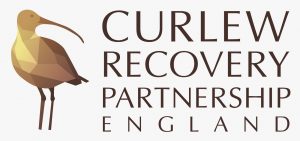The Curlew Recovery Partnership is a new, exciting and transformative initiative, bringing together all those with an interest in Curlew conservation, including land managers, farmers, gamekeepers, policymakers and researchers. They are joining forces to help secure the future of one of England’s most iconic and threatened species, the Eurasian Curlew.

Urgent action is needed. The Curlew is one of the most pressing bird conservation priorities in the UK, where nearly half the breeding population has been lost over the last 25 years and where range contraction has seen Curlews disappear from many traditional sites.
The partnership is the outcome of Curlew Recovery Summits hosted by His Royal Highness The Prince of Wales on Dartmoor in March 2018 and at Highgrove in February 2020. It will provide co-ordination and support to those engaged in Curlew conservation, while also providing benefits for other threatened species and habitats and helping people to connect with nature. HRH The Prince of Wales said:

“The hauntingly evocative cry of the Curlew is now all too seldom heard. This most wonderful bird needs urgent support and I am delighted that following meetings on Dartmoor in March 2018 and at Highgrove in February 2020, the England Curlew Recovery Partnership has been formed to bring together all those who can help provide such support and, indeed, promote this crucial cause to the public; many of whom, I am sure, are unaware of quite how special the Curlew is and the part that they can play in helping to save it for the benefit of current and future generations.”
The Partnership has recently appointed Mary Colwell as Chair and Prof Russell Wynn as Manager. Supported by a Steering Group, they will drive the Partnership forward, drawing upon the Partnership’s extensive combined experience of Curlew conservation, research and public engagement. In Mary’s words:
“The disappearance of curlews from across the open landscapes of England is deeply sad and a very tangible reminder of the crisis facing our wildlife. The Curlew Recovery Partnership is determined to work together to find solutions to reverse its decline and to help transform our relationship with nature. It is an honour to be part of this initiative.”

The Partnership’s Steering Group comprises nine organisations: Bolton Castle Estate, British Trust for Ornithology (BTO), Curlew Action, Curlew Country, Duchy of Cornwall, Game and Wildlife Conservation Trust (GWCT), Natural England, Royal Society for the Protection of Birds (RSPB), and Wildfowl and Wetlands Trust (WWT).
The Partnership has been set up with financial support from Defra and will explore opportunities to embed Curlew recovery within Defra’s new Environmental Land Management Scheme (ELMS) and the Nature Recovery Network. Natural England Chair, Tony Juniper said:
“Sadly, Eurasian Curlew is very scarce in many parts of England – if this decline continues there is a significant risk that future generations will not be able to enjoy these wonderful birds. We look forward to working as part of the Partnership’s Steering Group, which brings together those who are equally passionate about the recovery of these iconic birds. The partnership launched today is an example of the kind of positive collaboration that we know is needed if we are to reverse the declining fortunes of many of our wildlife species.”
The Partnership is now keen to engage with anyone interested in saving England’s Curlews, and will provide a conduit for information flow and future funding to support those working on the ground. To get involved, please email hello@curlewrecovery.org or visit the website at www.curlewrecovery.org


